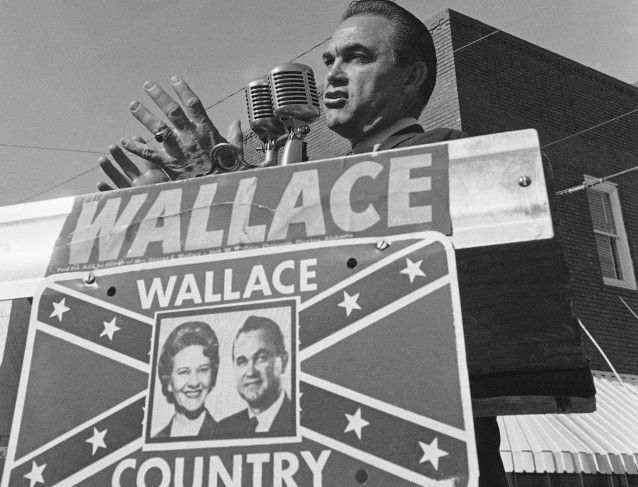America’s system of education was built for racial dominance. Anyone who actually studies history knows that. So it was curious to read the Times article “Teachers Union Chief; School Choice Rooted in Segregation” this week, where AFT president Randi Weingarten singled out “school choice” for its purported racist roots, when a more accurate title really should have read something like “American Society Rooted in Segregation.”
This matters because if we care about dismantling segregation root and branch we need to start at the base and not focus on one small twig.
And while, yes, I agree choice has been used for segregation, so have district boundaries, the state militias, private housing choices, public housing policy, state and local laws, the supreme court, tracking, etc. And lest we forget the segregated schools that we are supposedly desegregating—were segregated by law—those are the traditional public schools, and they are still fighting desegregation, not with pickets and pitchforks, but neighborhood boundaries and admission tests.
So yeah school choice has some roots in segregation, but the American education system is deeply rooted in it. And to focus on one and not the other seems either disingenuous or just naive.
So let’s look at how great things were for Black folks prior to school choice and how well we were served by the “public” education system.
From Wikipedia:
The fears of slave insurrections and the spread of abolitionist materials and ideology led to radical restrictions on gatherings, travel, and—of course—literacy. The ignorance of the slaves was considered necessary to the security of the slaveholders[4] Not only did owners fear the spread of specifically abolitionist materials, they did not want slaves to question their authority; thus, reading and reflection were to be prevented at any cost.
Each state responded differently to the insurrection. While Mississippi already had laws designed to prevent slave literacy, in 1841 the state legislature passed a law that required all free African-Americans to leave the state so that they would not be able to educate or incite the slave population. …While states like South Carolina and Georgia had not developed legislation that prohibited education for slaves, other, more moderate states responded directly to the 1821 revolt. In 1833, Alabama enacted a law that fined anyone who undertook a slave’s education between $250 and $550; the law also prohibited any assembly of African-Americans—slave or free—unless five slave owners were present or an African-American preacher had previously been licensed by an approved denomination.
Even North Carolina, which had previously allowed free African-American children to attend schools alongside whites, eventually responded to fears of insurrection. By 1836, the public education of all African-Americans was strictly prohibited.
These were the laws of the land, public schools were not meant to liberate Blacks, we were deliberately kept ignorant. Some might say we still are.
Formal segregation was the norm in the North and the South in the traditional public schools, and even after Brown v Board of Education and the Supreme Court’s recognition that separate was inherently unequal. The traditional public schools remained segregated through a thousand clever legal mechanisms. And traditional public schools are becoming increasingly segregated as we speak, which apparently is not a concern.
From US News:
A new report from the Government Accountability Office shows that from school years 2000-2001 to 2013-2014, the percentage of all K-12 public schools that had high percentages of poor and black or Hispanic students grew from 9 to 16 percent.Moreover, these schools were incredibly racially and economically concentrated: 75 to 100 percent of the students were black or Hispanic and poor.
Segregation is a problem. The use of public resources to privilege the privileged and further disadvantage the disadvantaged is shameful and should be discouraged, in whatever guise it appears. These are not “choice” problems, they are American problems. And racism and segregation are as American as apple pie, and have been around even longer than it.
To address this we don’t need scapegoats, we need honesty—so yeah, choice in some cases has contributed to segregation, but so has everything else in the U.S. education system. And if we are looking for solutions we need to focus on the problems, not scoring political points.

